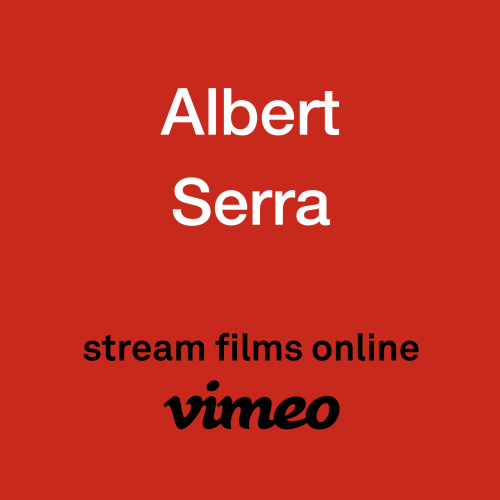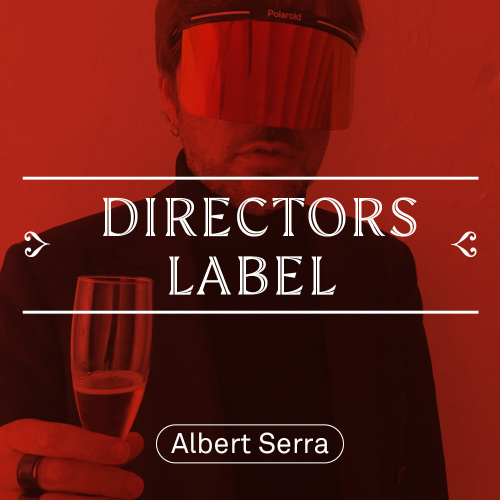
The Names of Christ
ELS NOMS DE CRIST, Spain 2010, 193 min
Episodic film, divided into 14 chapters, based on the play "De los nombres de Cristo" (1586), by Fray Luis de Leon and intended for an exhibition.
Synopsis
The three hours series consists of 14 episodes created for the exhibition “Are you ready for TV?” at the Museu d’Art Contemporani de Barcelona. Part of the film was shot inside the museum. The series deals with the difficulty financing a so-called “difficult film” and a range of topics, from the relationship between text and image to the concept of names, the way in which the public inhabits the museum environment and the relationship between exhibition space and art work.
Streaming-Info
Rent or buy the movie on our Vimeo channel. For other providers, see “Watch Movie”.
Language: Catalan, Subtitles: German, English
Press reviews
When he was commissioned to produce a new work for ‘Are You Ready For TV?’, Serra’s ambitious project functioned as an attempt to subvert the very concept of the artist commission. Els noms de Crist comprises a series of 14 episodes addressing a range of topics, from the relationship between text and image to the concept of names, the way in which the public inhabits the museum environment and the relationship between exhibition space and art work. Els noms de Crist is also a witty allegory of the process of filmmaking as a soteriological endeavour – soteriology being the study of religious doctrines of salvation. Christ, called the saviour (soter in ancient Greek) because he died on the cross to redeem the sins of the world, acquired numerous titles that Serra takes as departure points for his film series: Shepherd, Lamb, Husband, King of God, Prince of Peace as well as Bud, Beloved, Way, Mountain and, of course, Jesus. In the Shepherd chapter, Serra himself assumes the role of a ‘pastor’, defending his film crew against the criticisms of one of the producers. He intercuts these Godardian film-about-filmmaking scenes with images of a sheep in a mountain landscape. Eventually, the animal is revealed to be dead, apparently slaughtered: the ‘pastor’ was too busy filming to save this innocent creature.
Els noms de Crist differs from Serra’s earlier films, not least because it was conceived to be shown within an exhibition context, and its frames of reference are wide-ranging, in particular drawing on works in the MACBA collection: iconic depictions of Jesus; art works by Antoni Llena or Robert Motherwell; excerpts from films as diverse as King Vidor’s classic Western Duel in the Sun (1946) and Helen Levitt’s 1948 silent documentary about life in Harlem, In the Street; as well as the endless discussions about the film whose shooting Els noms de Crist supposedly documents. Serra uses these multiple references to draw analogies between, for instance, the saviour and the film producer (redeeming a film project by financing it). In a scene towards the end of Els noms de Crist, the producer is speaking on the phone to someone reporting to him about difficulties on the set of the very film we are watching. ‘I’ll come by helicopter,’ he declares, as if coming to save them and, by extension, us.
While the 14 parts of Els noms de Crist can be installed over several screens in an exhibition space, the piece would work equally well as a television series or shown in its uninterrupted entirety as a film. Personally, I feel this crypto-narrative needs to be viewed as a composite whole in order fully to grasp how the filmmaker and producer’s rivalry concerning the roles they play in redeeming the movie undermines the whole project. But perhaps I chose to read a story into Els noms de Crist because I saw the 14 parts in sequence; had I not, I might simply have marvelled at Serra’s inventiveness in devising so many peculiar and, at times, genuinely outlandish ideas relating to Jesus’ multiple designations. This project, which I believe to be Serra’s most important work, is one of the richest and most complex commentaries on the growing elision of art and cinema, both as media and in terms of their presentational environments.
It is up for debate whether the institutional critique that pervades Els noms de Crist is directed towards the art world, which frequently compels artists to travel from one residency to the next, or towards the international art house film sector, which has developed a similar mechanism by creating a class of nomad directors that must travel from funding body to funding body. – Bert Rebhandl, Features / Frieze, 21. März 2014
Catalonian Albert Serra’s career has been a curious one. He studied literature, but ended up becoming a film director - reluctantly, he once said, as he considers literature a higher form of art. This may explain why his films Honour of the Knights and Birdsong were based on the literary classic Don Quichotte and the biblical story of the Three Wise Men respectively, but rendered in an unconventional manner. Serra pays more attention to cinematic atmosphere than to plot, thereby underlining the problems facing film adaptations of books.
In this sense, this experimental 14-part series sums up his entire oeuvre. The Names of Christ deals with the challenges of the translation process, from literature to film and from film to museum and from museum to television. The majority of the series, shot in Serra's unfettered, slow style and over three hours in length, has been incorporated into the Barcelona Museum of Contemporary Art’s collection. – International Film Festival Rotterdam
Awards and Festivals
- Locarno International Film Festival 2011
- Viennale, Vienna International Film Festival 2011
- Rotterdam International Film Festival 2012
- Jeonju International Film Festival 2012
- Indiefest, Brazil
- Arsenal – Institut für Film und Videokunst, Berlin
- Tate Modern, Londres
- Undine, Italia
Credits
Director and Screenplay
Albert Serra
With
Román Bayarri, Nanu Ferrari, Jordi Pau, Montse Triola, Victòria Aragonés, Gerard Teixidor, Lluís Carbó, Lluís Serrat, Albert Serra
Director of Photography
Jimmy Gimferrer, Angel Martín
Editor
Àngel Martín
Sound
Jordi Ribas, Gerard Tàrrega
Executive Producer
Montse Triola
Produced by
Andergraun Films
Distribution Details
Screening Format
DCP (2K, 25 fps, 5.1)
Blu-ray Disc
Aspect Ratio
HD, 1.85:1
Language
Catalan
Subtitles
German, English
Promotion Material
Digital images
License Area
Germany, Austria, Switzerland
Rating
Not yet been checked








